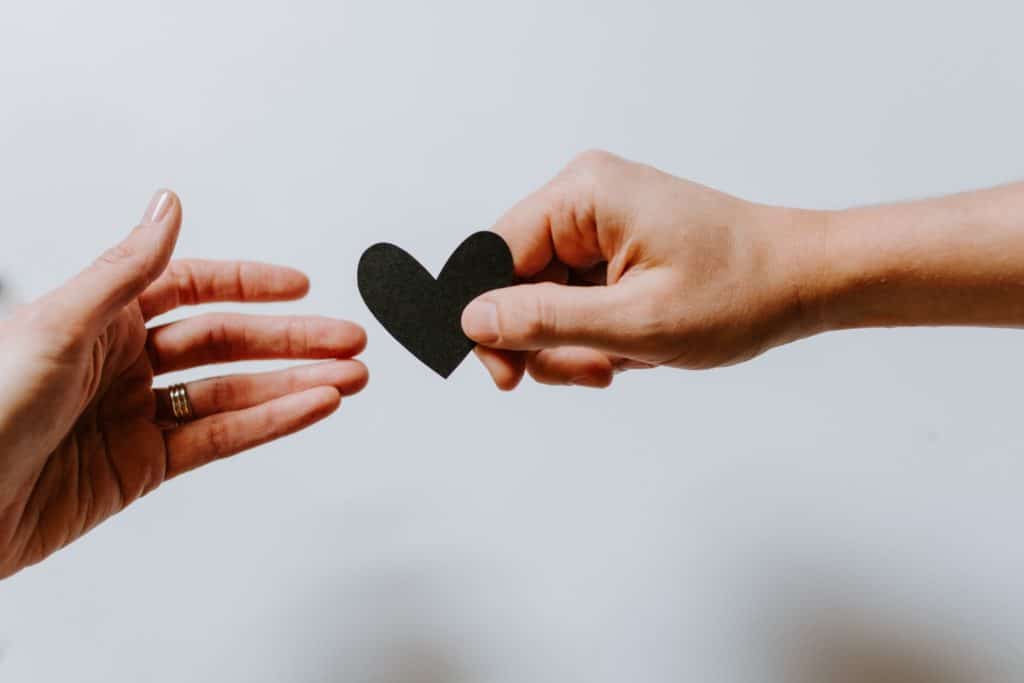Romantic and platonic relationships with our loved ones bring us great joy, meaning, and a sense of understanding and connection. Every relationship struggles at some point—from arguments to intimacy problems and financial troubles.
Some level of conflict in a relationship is normal, and it can even help us grow and connect. Often the complete lack of conflict is a red flag that partners are disengaged. In some cases, relationship problems can lead to symptoms of common mental health conditions, such as anxiety disorders and depressive disorders. Sometimes, relationship challenges can lead to emotional or physical abuse. When relationship issues become frequent or severe, they can interfere with our daily lives.

How common are relationship issues?
Because relationship challenges vary widely, it’s difficult to determine their exact prevalence. However, recent research studies suggest that relationship problems are widespread, especially in romantic relationships.
Intimate partner violence, including physical and emotional abuse, is also relatively common within the United States. According to the National Coalition Against Domestic Violence, over 10 million American adults experience intimate partner violence in a given year.
Signs of Relationship Issues
Relationship problems are different for everyone, and psychological and emotional responses to relationship challenges vary widely from person to person. Some of the most common symptoms of relationship challenges include:
- Excessive anxiety or worry: You might be preoccupied with concerns about your relationship or experience anxiety symptoms. Some of the physical symptoms of anxiety include feelings of fear and dread, shortness of breath, heart palpitations, nervousness, rapid heartbeat, chest pain, dizziness, panic attacks, dry mouth, insomnia, and nausea.
- Sadness or depression: Depending on the severity of your relationship challenges, You might experience a depressed mood, a major depressive episode, or other depression symptoms. Some of the symptoms of depression include a loss of interest in daily activities, fatigue, restlessness, changes in appetite, feelings of hopelessness, and negative thoughts.
- High stress levels: You might feel overwhelmed or experience the physical symptoms of stress, including muscle tension, chronic pain, headaches, sleep problems, and digestive problems. Over time, high cortisol levels can lead to long-term health problems and medical conditions, such as weight gain, high blood pressure, heart disease, and even heart attack and stroke.
- Conflicts with friends and family members: If you’re struggling with relationship challenges, you might find that other issues arise with friends, family members, or loved ones due to resentment or irritability.
- Low self-esteem: Feeling insecure in your relationship can lead to feelings of worthlessness and self-esteem issues.
Types of Relationship Problems
Relationship issues are profoundly personal and vary widely. Some of the most common kinds of relationship problems include:
- Trust issues/infidelity: You might wonder whether your spouse is honest about your relationship or other aspects of life.
- Household issues: Arguments surrounding chores and raising children are common.
- Communication issues: Communication issues may arise if you or your partner does not feel heard or understood.
- Financial issues: According to a 2015 national survey by the American Psychological Association (APA), finances are among the top stressors in romantic relationships.
- Issues around priorities: Relationship conflicts often arise due to problems surrounding attention and preferences, especially when making important decisions.
- Issues around sex and intimacy: Differing sex drives and questions surrounding attraction and satisfaction can lead to intimacy issues.
- Life transitions: Major life changes, such as the birth of a baby, moving, a stressful event, and menopause, can cause setbacks in relationships.
- Violence and abuse: When a relationship is marked by power and control, , the relationship most likely can be considered abusive. Additionally, strong links have been found between substance use and intimate partner violence, according to The National Center on Domestic Violence, Trauma & Mental Health. Substance use can range from the use of alcohol to illicit drugs and amphetamines. For more information on the warning signs of violence and abuse in relationships, visit the U.S. Department of Health and Human Services website.

Find a Therapist to Help With Relationship Issues
Get personalized matchesWhat should you do if you’re experiencing relationship issues?
If you’re experiencing stress, conflict, or danger in a relationship, regardless of the severity, it’s essential to seek help. Some treatment options include:
- Therapy: Working with a mental health professional can help you address relationship issues and work toward a resolution. You might attend talk therapy on your own, or you and your spouse might choose to attend couples therapy or family therapy together.
- Social support: When you’re facing relationship challenges, it can be beneficial to turn to the other important people in your life. Opening up to close family members or a trusted friend can help change your perception and serve as a reminder that you have other people you love and rely on. If you’re experiencing violence, consider asking loved ones for a safe place to stay.
- Self-care: If you’re experiencing chronic stress, a low mood, or high levels of anxiety, self-care can help you take care of your mental and physical health. Avoiding caffeine, eating a balanced diet, making time for regular exercise, getting enough sleep, and finding new hobbies can help boost your mood and ease your symptoms.
- Medications: If you’re struggling with anxiety symptoms or depression symptoms, your health care provider may recommend medications such as antidepressants, benzodiazepines, selective serotonin reuptake inhibitors (SSRIs), beta-blockers, or anti-anxiety medication to improve your symptoms and functioning in everyday life, according to the Anxiety and Depression Association of America. While medications may come with side effects, working with a psychiatrist can help you determine the best type of treatment for you.
- Hotlines: If you’re experiencing violence, contact the National Domestic Violence Hotline at 1-800-799-7233. If you’re having suicidal thoughts or need immediate mental health support, call the National Suicide Prevention Lifeline at 1-800-273-8255 or the National Alliance on Mental Illness (NAMI) Helpline at 1-800-950-NAMI. If you’re at risk of actual danger, call 911.
Finding the Right Therapist
Whether you’re facing new challenges in your relationship or struggling to cope after stressful life events, therapy is the first step to healing your relationship. Therapists utilize different types of psychotherapy, or talk therapy, to help solve relationship problems, including:
- Psychodynamic psychotherapy: Psychodynamic psychotherapy uses self-reflection and self-examination to explore unhealthy coping strategies and relationship patterns. Psychodynamic therapy is an effective treatment in helping patients navigate childhood abuse, neglect, sexual assault, and other traumatic events that may lead to relationship challenges.
- Cognitive-behavioral therapy (CBT): CBT, a type of talk therapy, helps target the thoughts and behaviors that lead to relationship challenges and helps couples view their struggles differently. CBT is useful in treating a wide range of mental health disorders, including bipolar disorder, post-traumatic stress disorder (PTSD), substance abuse, ADHD, and major depressive disorder, according to the National Institutes of Mental Health (NIMH).
- Interpersonal therapy (IPT): IPT aims to improve interpersonal relationships and social interactions to reduce distress. IPT is useful in treating different types of depression, such as clinical depression, persistent depressive disorder, and postpartum depression, as well as anxiety disorders, such as agoraphobia, social anxiety disorder, obsessive-compulsive disorder (OCD), panic disorder, generalized anxiety disorder (GAD), specific phobias, and separation anxiety disorder.
Relationships are integral to our happiness and well-being, according to the Harvard Medical School. However, relationships require hard work to maintain, especially during the ongoing COVID-19 pandemic. To find the right psychologist, psychiatrist, social worker, marriage and family therapist or counselor for your mental health needs, reach out to a licensed therapist through WithTherapy.
We’ll connect you to a mental health specialist you feel comfortable with, regardless of your preferences and requirements. One of the therapists on the WithTherapy platform will help you create a treatment plan to foster good communication, cope with relationship stressors, and work toward a healthy relationship.
Find a Therapist to Help With Relationship Issues




